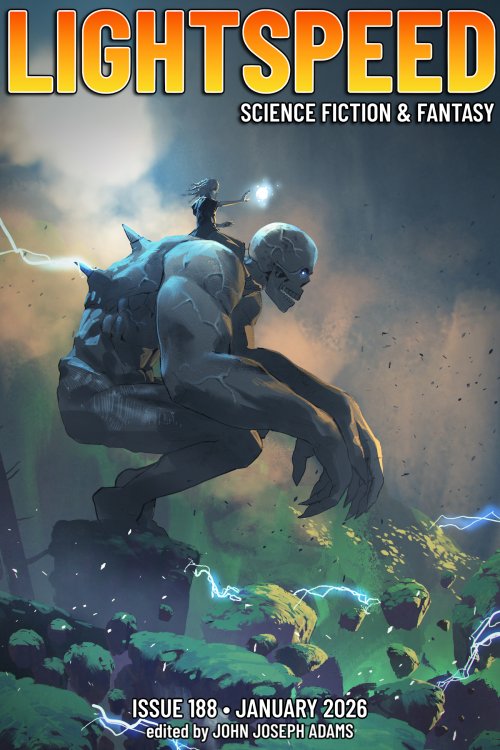How did “Blood for a Stranger” originate? What inspirations did you draw on?
As many readers surely noticed, the narrator’s name and the title have a certain connection—“Blood for a Stranger” is the name of a poetry collection by Randall Jarrell, probably most famous for his poem “The Death of the Ball Turret Gunner,” which is a staple of high school poetry courses and a favorite poem of mine. I’ve always been appalled and fascinated by how people were both part of a team and yet swapped out like parts of a machine. Over time, that thought became more science fictional, and eventually grew into this story.
What led you into writing genre fiction?
I’ve loved reading genre fiction more than anything else since I was a kid, and yet when I was in school for writing, I sort of felt like I had to write “literary” fiction. At the same time, whenever I came up with an idea, my brain would take it in speculative directions. I would try to rein myself in and write straight non-genre fiction, but it was never as fun as the books and stories that I liked to read. Finally, I realized that it was counterproductive to write something that I wouldn’t want to read and decided to just go wherever my weird thoughts took me.
Is there anything you want to make sure readers noticed?
Odd as it sounds, I had a lot of fun writing the corporate-speak that MacLeish uses. While I haven’t worked in super-big corporations, that sort of language seems to have so penetrated all work spaces that it’s unavoidable. And it’s always eye-rollingly ridiculous. For this story, I tried to imagine how corporations would take advantage of being able to copy (and copyright) human consciousness, and yet I am sure that no matter what changes the empty buzzwords will remain the same.
Do you have any advice for other writers?
Get writer friends or join a critique group. Having people critique your work and critiquing others’ work is hugely helpful in developing your craft. If you’re in the sort of group where you are working with the same people a lot, it is especially helpful, I think, as you get a good sense about what you’re good at and what you need to work on. But by critiquing others, you get an even better sense of what makes a story work than just by having someone critique your work. For me, it’s also been very helpful to have recently joined a group where we each write a new story every month—I can be a lazy writer, so accountability is huge.
Other than writing, do you have any other creative pursuits? What do you do to relax?
Other than the usual pop culture things (movies, reading, video games), I love to cook. With two young children, it can be tough to get especially creative (lots of chicken fingers) and I usually can’t do anything that takes very long, but since I started working from home, I am able to cook more things that take a longer time, like roasts or stews. And in the summer, I love smoking meat. At least once a year I like to get a big brisket or pork shoulder that takes a solid day to cook, even if it means I need to get up overnight to make sure the temperature is holding!
What are you working on lately? Where else can fans look for your work?
In case my agent reads this, I will say that I’m working on a novel. Luckily, this has the benefit of also being true, as I’m currently outlining a new book. It’s going to be tricky in a fun way, with three interweaving storylines. I feel like I’ve finally cracked it, so I’m excited to start the actual writing of it very soon too. As for where else hypothetical fans can find my work, I have three other stories in Lightspeed, one of which (“Different People”) was podcasted on LeVar Burton Reads. I’ve also had stories recently show up in PodCastle, Fusion Fragment, Interzone Digital, and elsewhere. There’s a full list on my website! (timothymudie.com)
Enjoyed this article? Consider supporting us via one of the following methods:








